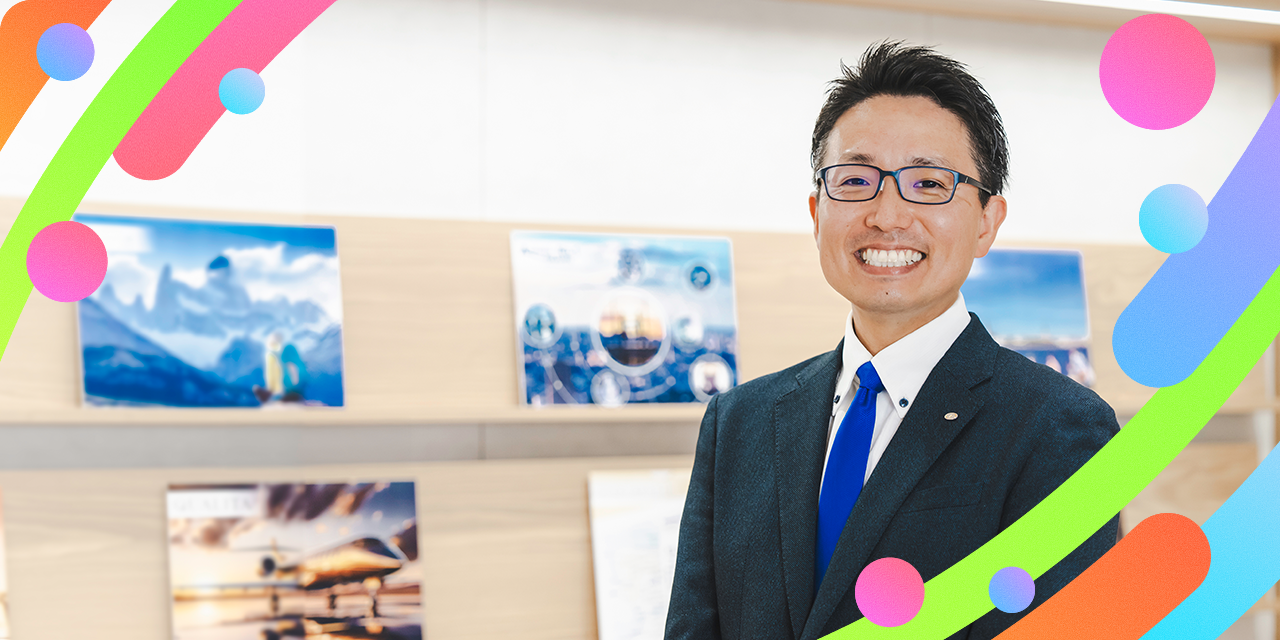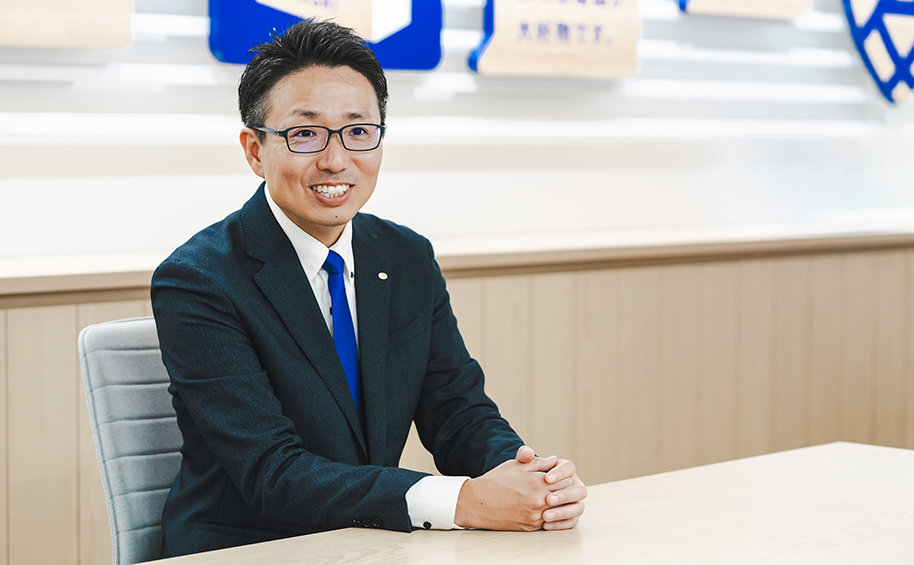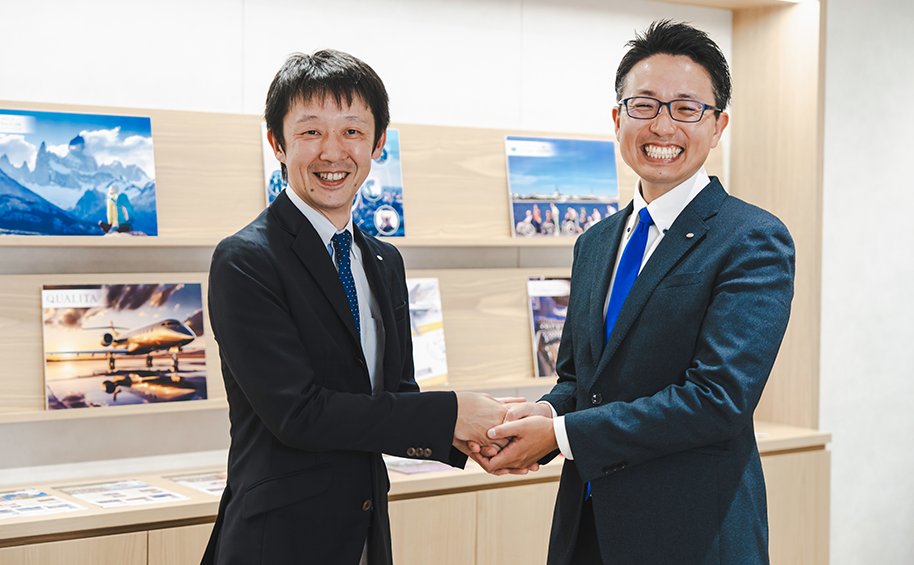
Casual travel made easy for everyone Universal Tourism Desk [Part 1]
Universal tourism refers to travel that everyone can enjoy safely, regardless of age, illness, or disability. HIS has set up a specialized desk to support travel arrangements so that anyone can enjoy travelling freely at any time. The Universal Tourism Desk is now in its 23rd year. In [Part1] of this series, we will feature "Tabi no Wa" (meaning "travel circle") , a program targeting wheelchair users, and in [Part2], we will feature "Shuwa Tabi" (meaning "sign language trip") , a program targeting people with hearing impairments. In this article, we spoke about "Tabi no Wa" with Mr. Takato, branch manager of the Universal Tourism Desk.
Please tell us about the origins of the Universal Tourism Desk.
In 2002, we launched a specialized desk for people who feel anxious about traveling due to aging, illness, injury, or residual disabilities. At that time, Japan had enacted the "Transportation Barrier-Free Act" two years earlier, and efforts were underway to promote barrier-free transportation. Previously, our local sales offices nationwide would receive inquiries from customers, with individual staff members confirming the details of each disability and the challenges involved before arranging a trip. However, this meant that knowledge was not being accumulated.So we recognized the importance of centralizing knowledge and information to ensure our customers could use our services without worries. This led us to establish a specialized desk.
Initially, we operated as a booking office for existing package tours. However, we began receiving numerous inquiries from customers requesting tours specifically designed for people with disabilities. As a result, we now offer specialized tours, including "Tabi no Wa," a tour accompanied by a tour guide for wheelchair users, and "Shuwa Tabi," a tour for people with hearing impairments. Reservations are composed of 20% "Tabi no Wa" trips, 20% "Shuwa Tabi," and 20% individual arrangements. However, the Universal Tourism Desk serves a wide range of people, from those who need assistance to those who simply want a more relaxed travel pace. We also collaborate with branches nationwide to conduct seminars and provide advice for employees.
Tell us about the "Tabi no Wa" tour.
"Tabi no Wa" is a tour accompanied by a tour conductor, mainly targeting wheelchair users. Each tour is conducted with around 10 participants, half of whom are wheelchair users and the other half are their caregivers. Approximately 80% of participants are elderly, aged 65 or older, and most participate as couples. Recently, there has been an increase in mother-daughter trips involving mothers in their 70s and 80s. Some participants use a cane for daily walking but prefer to use a wheelchair for travel due to the frequent movement involved. There are also solo participants. In such cases, we confirm whether they can manage daily activities such as mobility, meals, restroom use, and bathing independently, without an assistant, and are able to self-propel a wheelchair or use an electric wheelchair. Since the pandemic, airlines have increased the number of required documents and verification items for wheelchair accommodations, and information is now updated more frequently than before. With the expertise of our specialized desk, we work with customers to prepare for their departure, ensuring they can travel with safety and confidence by clarifying what needs to be done by when.
Every year, tours are offered to Hawaii and Amami Oshima. However, for other locations, different regions are often featured each year. This is because many customers prefer to visit different destinations rather than the same region every year. Because "Tabi no Wa" tours require a minimum number of participants to run, the number of tours varies every year. Nevertheless, we still manage to conduct about 5 to 6 domestic and international trips per year. We often receive suggestions from customers on their next travel destination, and we may consult with them to see which month would work best for everyone. While many of our travelers are repeat customers, there are times when a significant number of people on our international tours were first-time users of HIS. We feel that our customers may have thought that even regions like Machu Picchu, Uyuni Salt Flats, and Meteora Monastery, which might seem difficult to visit solo in a wheelchair, could be possible with an HIS tour.

At the Sagrada Familia Cathedral in Spain
For our travel itinerary, we first create the ideal travel route based on your preference. Then, we check if the plan is feasible by calculating the time required for travel between locations. Simultaneously, we coordinate with the accepting parties, such as HIS local branches, transfer companies, and accommodations, to confirm if multiple wheelchair transfers are possible, and if the required time for each is appropriate, before rebuilding a manageable route. We often use vehicles with lifts for wheelchairs, but for a group of five wheelchair users, getting on and off the vehicle can take about 20 to 30 minutes for a single group. To avoid rushing our customers, it's essential to plan itineraries with plenty of time.
Could you tell us about your career before you were assigned to the Universal Tourism Desk?
Originally, I was studying welfare at university. During those days, I went on my first overseas trip to Cambodia, and when I showed photos of Angkor Wat to a friend in a wheelchair after returning to Japan, he said, "I wish someone like me could also go to places like that." That moment lit a fire in me to want to create trips that my friend could join, which is why I decided to work for a travel company. I figured that since people can research domestic trips in Japanese, I should join HIS, which specializes in international travel. Since I attended university in Kyoto, I went through the job application process in the Kansai region and was successfully hired. However, the Universal Tourism Desk was only located in the Kanto region. I consulted with Human Resources and my manager about how I could transfer between regions, and they advised me to use the internal recruitment system. So when the Universal Tourism Desk announced an opening in the autumn of my fifth year at the company, I applied. Since I was applying from the Kansai region, the plan was to have an online interview after the document screening. However, I wanted to convey my enthusiasm directly, so I traveled all the way to the head office in Tokyo. I was successfully hired, and in the spring of my sixth year with the company, after the new year, I was transferred to my desired position at the Universal Tourism Desk.
Internal recruitment system: A system where departments seeking talent recruit employees who can then apply for a transfer.
Can you share with us any Kokoro Odoru exciting episodes you had with customers?
There are mainly two things. The first was when shortly after I transferred to the Universal Tourism Desk, a regular customer commented on my lack of experience. However, I did my absolute best to help with all the travel preparations, and in the end, the customer said, "I'm glad it was you, Takatou-san." That's a memory that still stays with me today. I have since had the pleasure of traveling with that customer on various trips, and they continue to use our services to this day. The second was with a customer who was using the desk for the first time. They must have had many concerns, as they asked numerous questions and called every day starting two weeks before departure. Although I was not the tour guide for the trip they booked, I went to the airport to see them off on the day of departure. And in that moment, I'll never forget the smile on their face when they told me, "I had a lot of worries, but now I feel much more comfortable about departing." It was a moment which made me feel that this job was truly worth doing, and my heart was pounding with joy and gratitude.
With the pandemic lasting several years, our customers have also aged. Some have told us that their physical fitness has declined due to staying at home for years, while others have been proactive and decided to travel while they are still in good health. I take pride and find fulfillment in my work where I can help customers achieve the trips they'd long since given up on for various reasons.

Tell us about your future goals and aspirations.
Currently, the Universal Tourism Desk is only located in the Kanto region, so most of our customers live in the surrounding areas. Despite this, we receive bookings from all over the country. In the future, we would like to expand our bases not only in Kanto but also in Kansai, Chubu, Kyushu, and other regions across the country. If there are tours departing from airports in your local area, it may encourage you to take the first step toward traveling.
As the population ages and the lifespan for travel increases, the demand for universal tourism will likely increase. In my opinion, the key to promoting universal tourism is to make information visible and easily accessible to customers. We believe our role is to lower the barriers to travel so that everyone can their trip with ease.

In [Part2], we will take over from Mr. Takato and talk to Mr. Katagiri of the Universal Tourism Desk about "Shuwa Tabi," a program for people with hearing impairments.
-

-
Takato Hiroshi
H.I.S. Co., Ltd.
Branch Manager, Universal Tourism DeskJoined the company in 2009. Worked as a consultant and in marketing at the Kansai Sales Division before joining the Universal Tourism Desk in 2014. Appointed director in 2024. Responsible for all aspects of product development, sales, arrangements, and tour escorting.
*Please note that the content of this article was current at the time of the interview.
